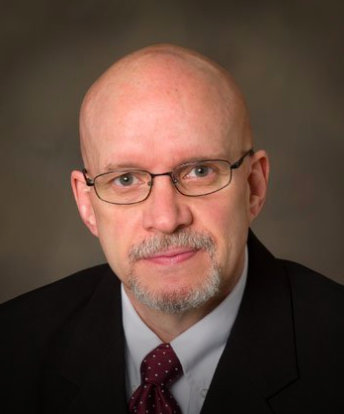Posted 12:05 p.m. Tuesday, May 8, 2018

Over 20 years, area doctors share real-world case studies with biomedical science students.
Over 20 years, area doctors share real-world case studies with biomedical science students
As a UW-La Crosse student in the 1970s, Dr. Ward Brown, M.D., helped launch UWL’s first rugby team with friends while pursuing the academic rigor of graduate studies. "I love UWL," says Brown. "It was a friendly environment and an intellectually stimulating place." [caption id="attachment_52169" align="alignright" width="250"] Dr. Ward Brown, M.D.[/caption]
That’s a big part of the reason Brown, now a cardiologist at Gundersen Health System, returns to campus every year. For 20 years, he has presented to students in a pathology and pharmacology course, sharing case studies and the practical side of his profession with young people planning for heath care careers.
Brown and several other doctors from Gundersen and Mayo Clinic Health System – Franciscan Healthcare speak to UWL students in the class, “BIO443-Molecular Mechanisms of Disease and Drug Action” each spring. Many, like Brown, have provided practical presentations for the class since it started.
"As pre-med students, we tend to idealize physicians. But this is not 'Grey's Anatomy' or 'M*A*S*H.' …," says UWL senior Tyler Billman. "When they come in, we are able to see what this profession actually looks like."
UWL professors Aaron Monte, Chemistry and Biochemistry, and Scott Cooper, Biology, created the course 20 years ago, combining their knowledge to help students understand the biological basis of diseases, as well as the medications that have been developed to treat them. While they offer the theoretical background, the doctors are able to share real world, clinical case studies, bringing students the more human side of the profession.
UWL senior and biology major Megan Phillippi, who plans to attend medical school, calls the class one of her all-time favorites. Regular visits from doctors have helped her see how to apply the technical information from Cooper and Monte, she says.
Billman, a biomedical science major with psychology minor, says the class is a combination of his primary interests in biology, pharmacology, physiology and chemistry — as well as caregiving. A part-time nursing assistant at Gundersen Health System, he says medical school may also be in his future.
Dr. Ward Brown, M.D.[/caption]
That’s a big part of the reason Brown, now a cardiologist at Gundersen Health System, returns to campus every year. For 20 years, he has presented to students in a pathology and pharmacology course, sharing case studies and the practical side of his profession with young people planning for heath care careers.
Brown and several other doctors from Gundersen and Mayo Clinic Health System – Franciscan Healthcare speak to UWL students in the class, “BIO443-Molecular Mechanisms of Disease and Drug Action” each spring. Many, like Brown, have provided practical presentations for the class since it started.
"As pre-med students, we tend to idealize physicians. But this is not 'Grey's Anatomy' or 'M*A*S*H.' …," says UWL senior Tyler Billman. "When they come in, we are able to see what this profession actually looks like."
UWL professors Aaron Monte, Chemistry and Biochemistry, and Scott Cooper, Biology, created the course 20 years ago, combining their knowledge to help students understand the biological basis of diseases, as well as the medications that have been developed to treat them. While they offer the theoretical background, the doctors are able to share real world, clinical case studies, bringing students the more human side of the profession.
UWL senior and biology major Megan Phillippi, who plans to attend medical school, calls the class one of her all-time favorites. Regular visits from doctors have helped her see how to apply the technical information from Cooper and Monte, she says.
Billman, a biomedical science major with psychology minor, says the class is a combination of his primary interests in biology, pharmacology, physiology and chemistry — as well as caregiving. A part-time nursing assistant at Gundersen Health System, he says medical school may also be in his future.
